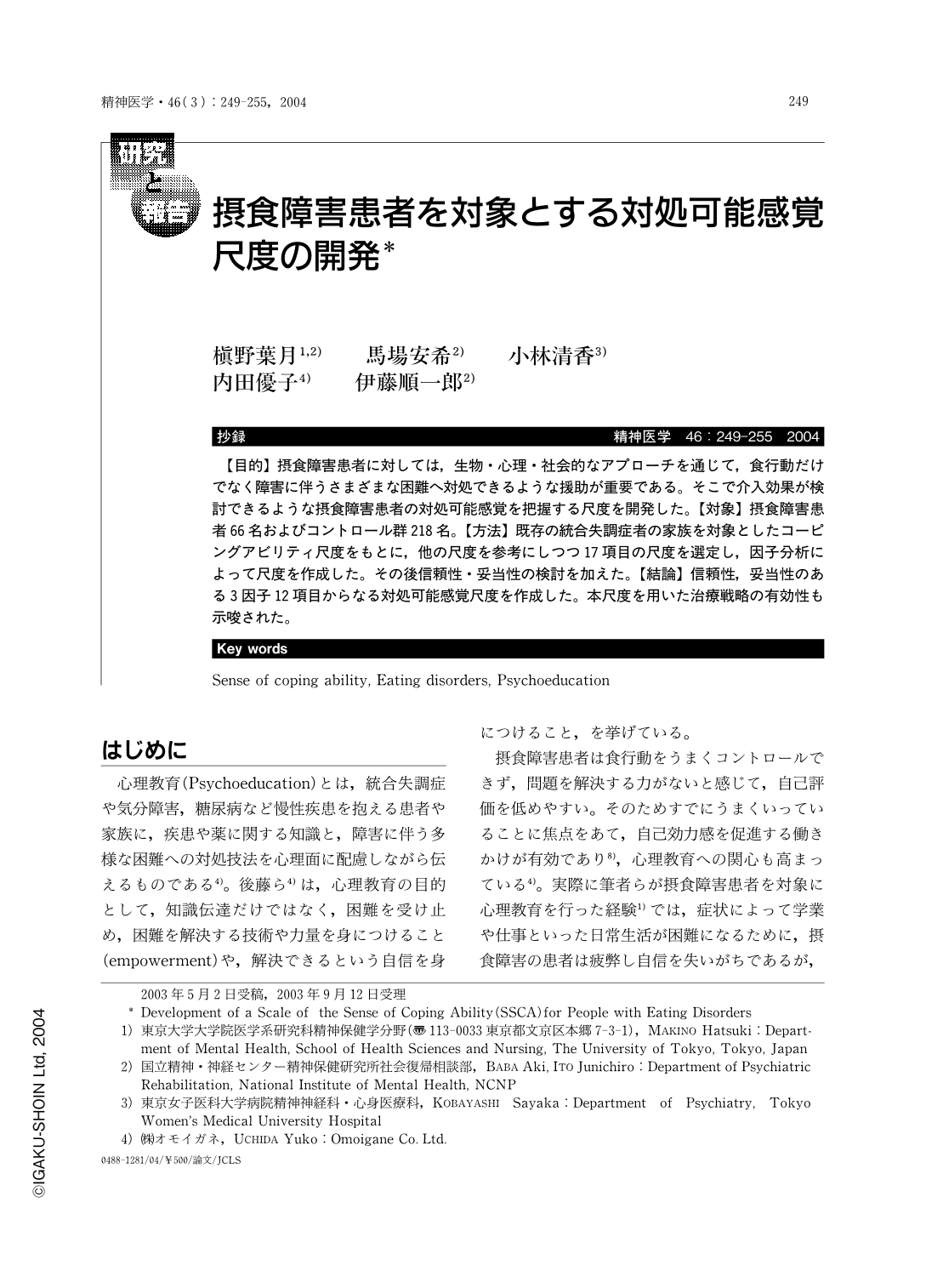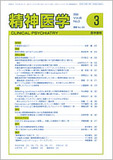Japanese
English
- 有料閲覧
- Abstract 文献概要
- 1ページ目 Look Inside
抄録
【目的】摂食障害患者に対しては,生物・心理・社会的なアプローチを通じて,食行動だけでなく障害に伴うさまざまな困難へ対処できるような援助が重要である。そこで介入効果が検討できるような摂食障害患者の対処可能感覚を把握する尺度を開発した。【対象】摂食障害患者66名およびコントロール群218名。【方法】既存の統合失調症者の家族を対象としたコーピングアビリティ尺度をもとに,他の尺度を参考にしつつ17項目の尺度を選定し,因子分析によって尺度を作成した。その後信頼性・妥当性の検討を加えた。【結論】信頼性,妥当性のある3因子12項目からなる対処可能感覚尺度を作成した。本尺度を用いた治療戦略の有効性も示唆された。
Summary
Objective It is important in the treatment of eating disorders to assist patients to cope with not only eating habits but also with other various consequential difficulties by using a bio-psycho-social approach, for example, psycho education. We focused on the sense of being able to cope with difficulties. If the patient has this sense strongly, he/she will get suffcient knowledge and learn various ways to cope with the difficulty, so he/she can select a coping action applicable to the situation. It seems that this sense was improved through a psycho educational approach. However, little interest has been shown in this sense so far. So to examine the effect of psychoeducation, we developed a scale to assess the sense of being being able to cope with eating disorders. Subjects 66 people with eating disorders (EDG) and 218 normal people as a control group (Ctrl). Method 17 items were decided on based on existing coping scales. The scale items were determinied through factor analysis. We named this The Scale of the Sense of Coping Ability (SSCA). Its reliability and validity were examined. Result Some items were deleted because of factor contribution. There were three factors named “Awareness of little changes”. Cronbach's alpha of the SSCA or every factor was 0.67-0.80. SSCA and factors were correlated with Rosenberg's Self-Eseem. EDG were divided into a Good group and a Poor group according to the SSCA total score. The Good group had a better for GHQ score, apathy and un- purposed feeling, and social support shan the Poor group. The GHQ score and social support didn't differ significantly between the Good group and the Ctrl. The Poor group was more negative than the Ctrl in unpurposed feeling, and social support. Conclusion A Scale of the Sense of Coping Ability (three factors and 12 items) was developed. It has some reliability and validity. It is suggested that this scale is a useful treatment strategy for eating disorders.

Copyright © 2004, Igaku-Shoin Ltd. All rights reserved.


